Artificial Intelligence Books for CBSE Skill Subject 417
The most comprehensive program to successfully implement CBSE Skill Subject 417 (AI) for classes 9 and 10 with hands-on practical activities.
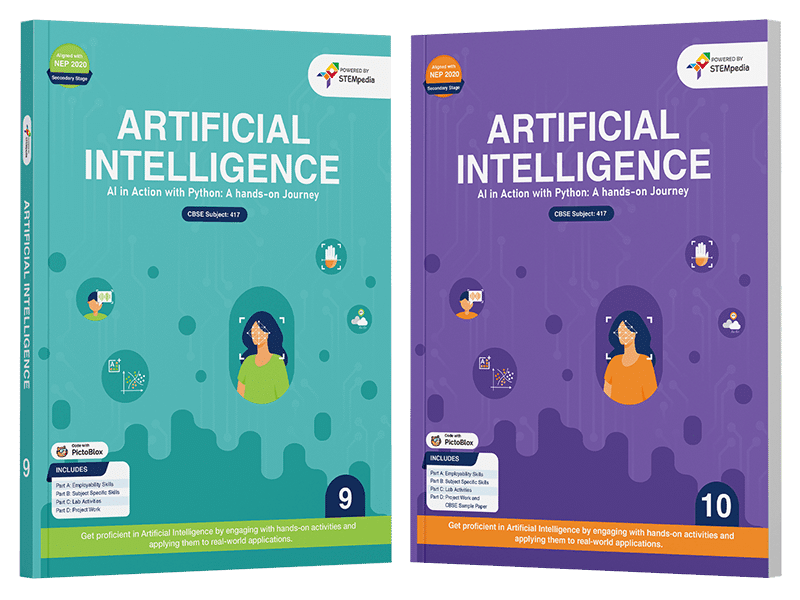
The most comprehensive program to successfully implement CBSE Skill Subject 417 (AI) for classes 9 and 10 with hands-on practical activities.

The CBSE (Central Board of Secondary Education) in India has introduced an elective subject called “Artificial Intelligence” with the subject code 417. This subject is part of an initiative to modernise the education system and to keep pace with the evolving technological landscape. The course aims to equip students with the skills needed for the future job market, where AI is expected to play a significant role. It’s not just about programming but also understanding how AI can be ethically and effectively integrated into various fields.
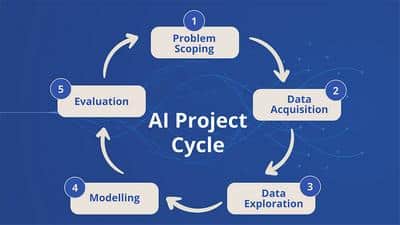

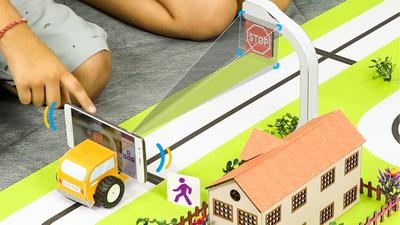









STEMpedia integrates the CBSE Class 9 and 10 AI curriculum (Subject Code – 417), blending theoretical AI knowledge with practical skills and using tools like PictoBlox Python, Machine Learning Environment and Notebook Editor for interactive learning. Their approach prepares students for future tech careers, focusing on hands-on experience and real-world application.
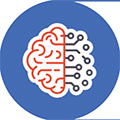
Emphasizing holistic development, the curriculum covers essential employability skills such as communication, self-management, and ICT skills.
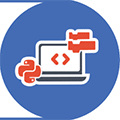
Aligned with CBSE AI subject (Code 417), assisting students in excelling in their exams and build tech competency.
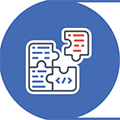
Incorporating 30 hands-on activities and theme-based learning that make learning both fun and intellectually stimulating.

Tailored specifically for Class 9 and 10 students, the curriculum integrates advanced AI concepts with Python programming, offering a cutting-edge learning experience.

Learn the art of coding through Python coding in PictoBlox, a premier tool for young learners. Students also receive 5000 AI credits for PictoBlox.

Exclusive access to Codeavour – the AI and Robotics Competition, with the opportunity to represent India on the global stage at Dubai.
STEMpedia provides Artificial Intelligence textbooks and practical activities for CBSE classes 9th and 10th aligned with subject code 417, covering the topics proposed in the CBSE AI syllabus.
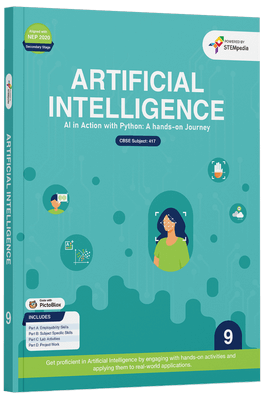
|
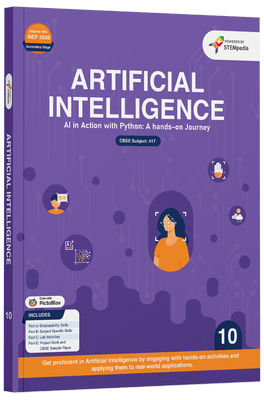
|
|
| Total Pages | 243 | 266 |
| Employbility Skills | ||
| Number of Chapters - Subject Specific Skills | 4 | 7 |
| Number of Activities | 30 | 40 |
| CBSE Skill Subject Covered | Class 9 Artificial Intelligence Subject Code 417 | Class 10 Artificial Intelligence Subject Code 417 |
| Software and Hardware Used | Windows 10, PictoBlox Python, PictoBlox AI, PictoBlox Machine Learning Environment | Windows 10, PictoBlox Python, PictoBlox AI, PictoBlox Machine Learning Environment, Python Libraries |
| Competition | ||
| Technologies Covered | Employability Skills, Artificial Intelligence, Data Science and Machine Learning | Employability Skills, Artificial Intelligence, Data Science and Machine Learning |
| Session Required | Total 120 – (60 Lab Sessions, 60 Classroom Learning Sessions) | Total 120 – (60 Lab Sessions, 60 Classroom Learning Sessions) |
| Resources for Teachers | Lesson Plan, Lecture Slides (Textual, Images, Video) | Lesson Plan, Lecture Slides (Textual, Images, Video) |
| Certification | Yes. Need to submit 15 lab activities online to get digital certificate. | Yes. Need to submit 10 lab activities online to get digital certificate. |
| Book Sections | Part A: Employability Skills | Part B: Subject-specific Skills (AI) | Part C: Lab Activities | Part D: Project Work / Field Visit / Student Portfolio | Part A: Employability Skills | Part B: Subject-specific Skills (AI) | Part C: Lab Activities | Part D: Project Work / Field Visit / Student Portfolio |
| Table of Content for Employbility Skills | Unit 1: Communication Skills - 1 | Unit 2: Self-Management Skills – 1 | Unit 3: ICT Skills – 1 | Unit 4: Entrepreneurial Skills – 1 | Unit 5: Green Skills – 1 | Unit 1: Communication Skills - 2 | Unit 2: Self-Management Skills – 2 | Unit 3: ICT Skills – 2 | Unit 4: Entrepreneurial Skills – 2 | Unit 5: Green Skills – 2 |
| Table of Content for Subject Specific Skills | Unit 1: Introduction to Artificial Intelligence (AI) | Unit 2: AI Project Cycle | Unit 3: Neural Network | Unit 4: Introduction to Python | Unit 1: Introduction to Artificial Intelligence (AI) | Unit 2: AI Project Cycle | Unit 3: Advance Python | Unit 4: Data Science | Unit 5: Computer Vision | Unit 6: Natural Language Processing | Unit 7: Evaluation of AI Models |
| Details of Lab Activities | Basics of Python Programming (14 Activities) | AI with PictoBlox (8 Activities) | ML with PictoBlox (8 Activities) | Advance Python (18 Activities) | OpenCV Basics (4 Activities) | AI with PictoBlox (2 Activities) | ML with PictoBlox (6 Activities) |
| Table of Content of Project Work and Exam Preparation | Capstone Project – Codeavour | Sample Projects Built by Community | Capstone Project – Codeavour | Sample Projects Built by Community | Blueprint for Sample Question Paper for Class X (Session 2023-2024) | Sample Question Paper for Class X (Session 2023-2024) | Marking Scheme for Class X (Session 2023-2024) |
| Explore More | Explore More |
Explore our innovative educational materials firsthand. Request a sample book and discover how our comprehensive curriculum in AI, Coding, and Robotics can enrich your school’s educational offerings. We will send the books to your school and schedule a demo after we get in touch with you.
Discover the power of the STEMpedia ecosystem – a revolutionary Coding, AI, and Robotics solution for schools! Our educational specialists are here to show you how to harness the potential of this cutting–edge technology.
In as little as one hour, we can assign the right resources to your specific educational requirements and help unlock the countless possibilities STEMpedia provides.
Contact us for a free demonstration tailored to fit your school‘s schedule. Act now and let STEMpedia revolutionize the way you learn.
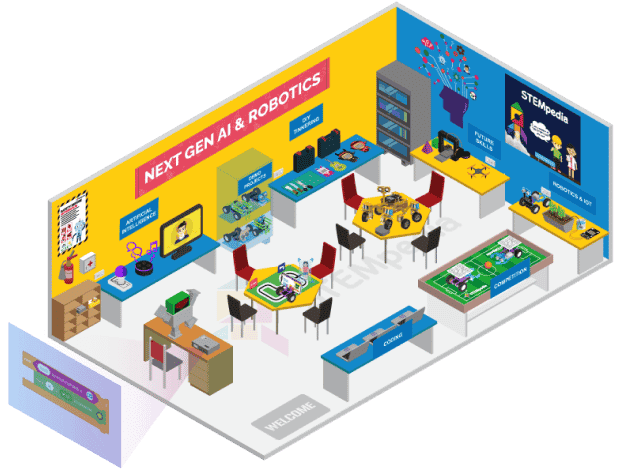
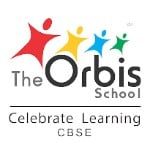






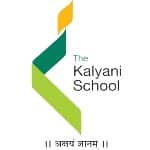




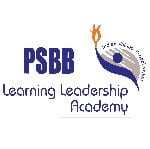





The Class 9 AI book introduces foundational concepts of artificial intelligence, setting the stage for understanding future technologies. It covers basic Python programming and neural networks, equipping students with essential skills for future technological environments. The blend of theoretical knowledge and practical exercises ensures that students are not only aware of AI concepts but are also adept at applying them, fostering a mindset ready for continual learning and adaptation in a fast-evolving tech world.
Building on the Class 9 foundation, the Class 10 book delves into more advanced topics such as data science, computer vision, and natural language processing. This progression ensures a deeper understanding of AI’s complex and multi-faceted nature. The inclusion of advanced Python programming and exploration of various AI models prepares students for higher-level AI challenges and applications, aligning their skills with the latest industry standards.
Employability skills form a core part of the AI curriculum to prepare students for the workforce. These skills, encompassing communication, self-management, and ICT capabilities, are crucial for future professionals. They ensure students are not just technically sound but also possess the soft skills necessary to thrive in collaborative, dynamic work environments. This holistic approach helps in shaping well-rounded individuals who can effectively navigate and contribute to their future workplaces.
Lab activities in these books are designed to reinforce theoretical concepts through practical application. By engaging in hands-on projects, students transition from mere observers to active participants in AI learning. These activities help demystify AI concepts, making abstract ideas tangible and understandable. This experiential learning is crucial in solidifying students’ understanding and fostering an experimental and inquisitive approach towards AI.
The ‘Project Work’ section is pivotal as it allows students to apply their learned concepts to real-world scenarios. This segment of the curriculum fosters innovation and problem-solving skills. Projects aligned with Sustainable Development Goals instil a sense of responsibility and a broader perspective on how AI can be leveraged for global challenges. This approach nurtures creativity and a sense of purpose in students’ AI activities.
PictoBlox is an effective educational tool due to its user-friendly interface and engaging learning format. It simplifies complex AI concepts, making them accessible to younger learners. The interactive platform allows students to experiment with AI applications in a guided environment, fostering a deep and intuitive understanding of AI principles and their practical implementations.
The AI books are structured to cater to diverse learning preferences. Theoretical lessons provide a solid conceptual framework, while practical activities and lab sessions address experiential learning needs. This combination ensures that all students, regardless of their learning style, can engage with and benefit from the AI curriculum.
Ethical considerations are an integral part of the AI curriculum. The books discuss the implications of AI on privacy, societal norms, and potential biases in AI systems. This inclusion helps develop a generation of AI practitioners who are not only technically proficient but also ethically conscious, ensuring responsible development and use of AI technologies.
The curriculum encourages creativity and innovation by providing opportunities for students to engage in project-based learning. These projects challenge students to think creatively, apply their knowledge to new situations, and innovate solutions for real-world problems. This approach fosters a mindset that is not just about learning AI but using it as a tool for creative problem-solving.
The curriculum aligns with the future job market by incorporating skills and knowledge that are highly sought after in the tech industry. By focusing on current and emerging AI technologies, the courses prepare students for the evolving demands of tech careers, ensuring they are ready for future challenges and opportunities in the field.
Teacher resources such as lesson plans and lecture slides play a critical role in effective curriculum delivery. These resources provide a structured framework for educators, ensuring consistency and comprehensiveness in teaching. They also offer guidance and support, enabling teachers to effectively impart AI knowledge and skills to their students.
The lab activities in the Class 9 and 10 AI books are designed to provide hands-on experience and practical application of the concepts taught in the theoretical sections. They are an integral part of the curriculum, bridging the gap between theory and practice.
Class 9 Lab Activities:
Class 10 Lab Activities:
Yes, upon completion of the courses outlined in the Class 9 and 10 AI books, students are eligible for certification. This certification is predicated on the completion of certain criteria, which typically include the successful completion of lab activities and projects.
For both the Class 9 and Class 10 AI courses, a total of 120 sessions are required. These sessions are divided equally between lab sessions and classroom learning sessions.
This balanced approach ensures that students get a comprehensive learning experience, combining theoretical knowledge with practical skills.
Both the Class 9 and Class 10 AI books cover the “Artificial Intelligence” skill subject under the Central Board of Secondary Education (CBSE), with the subject code 417.
The inclusion of this subject in the CBSE curriculum reflects the growing importance of AI in today’s technological landscape and the need to equip students with the necessary skills and knowledge to navigate this evolving field.

Copyright 2025 – Agilo Research Pvt. Ltd. All rights reserved – Terms & Condition | Privacy Policy
To access Skillful Minds curriculum download, please fill in your details below.
Thank you for providing your details.
Click the button above to start your download immediately. If you encounter any issues with your download, please contact us at support@thestempedia.com.
